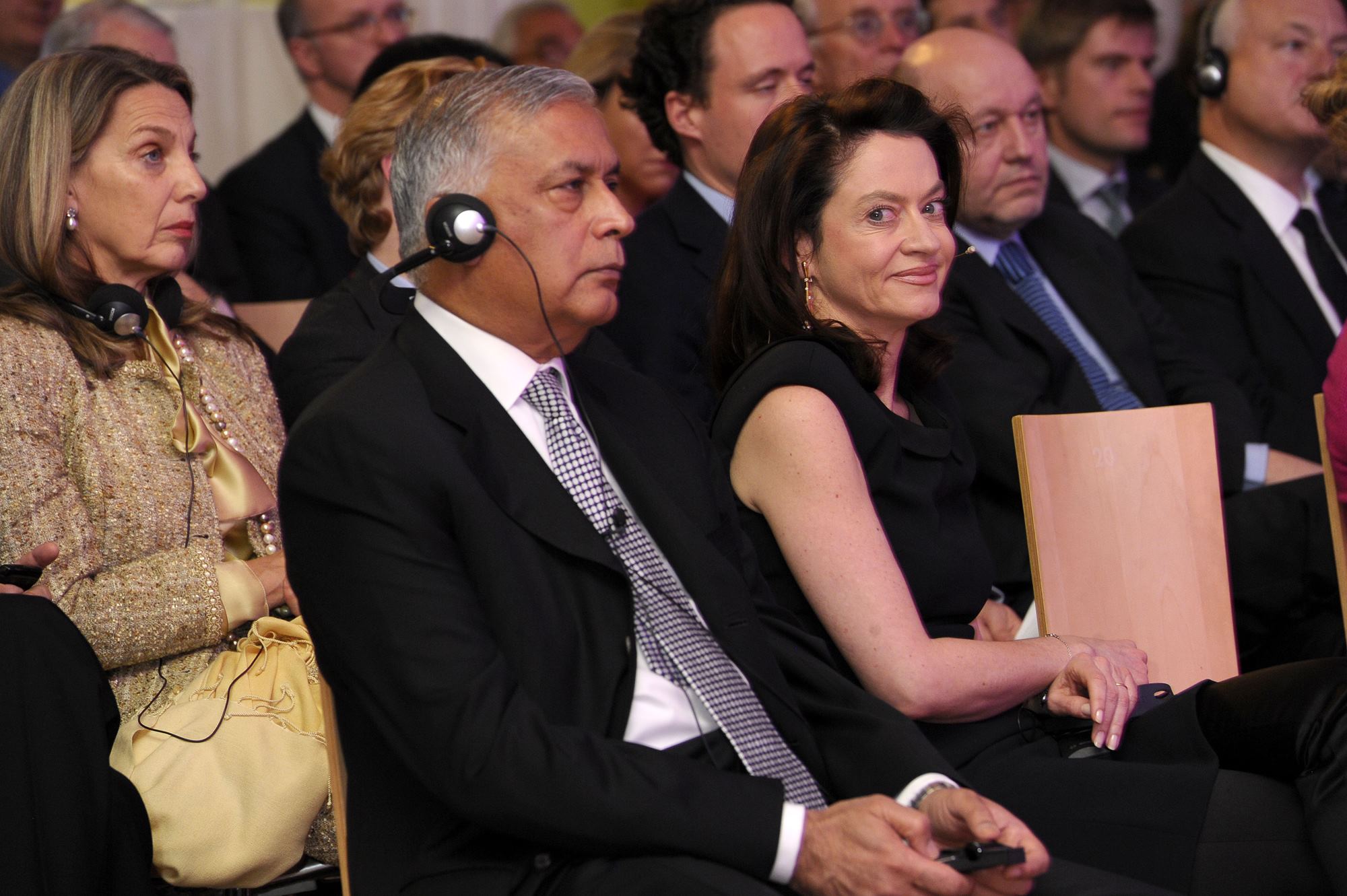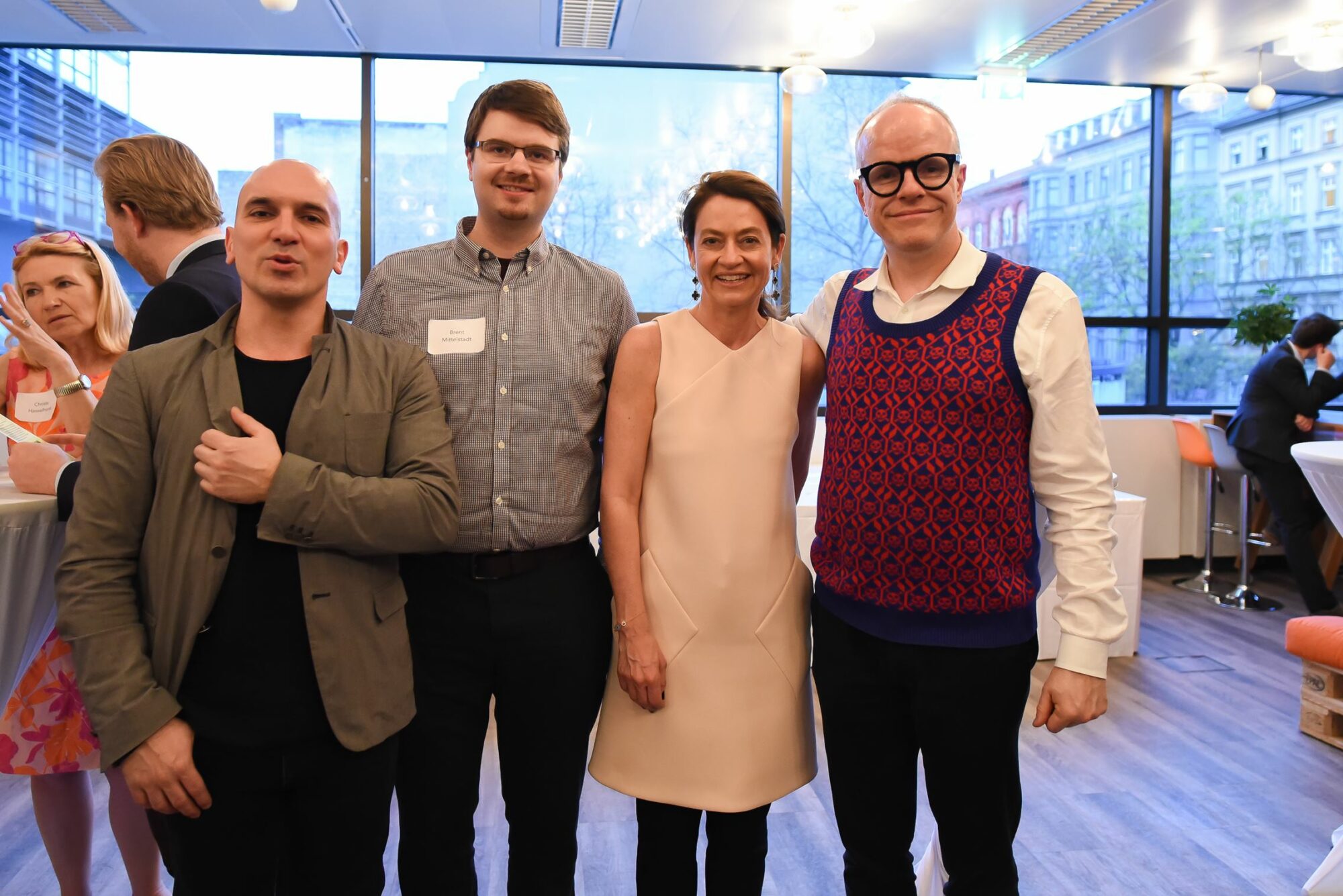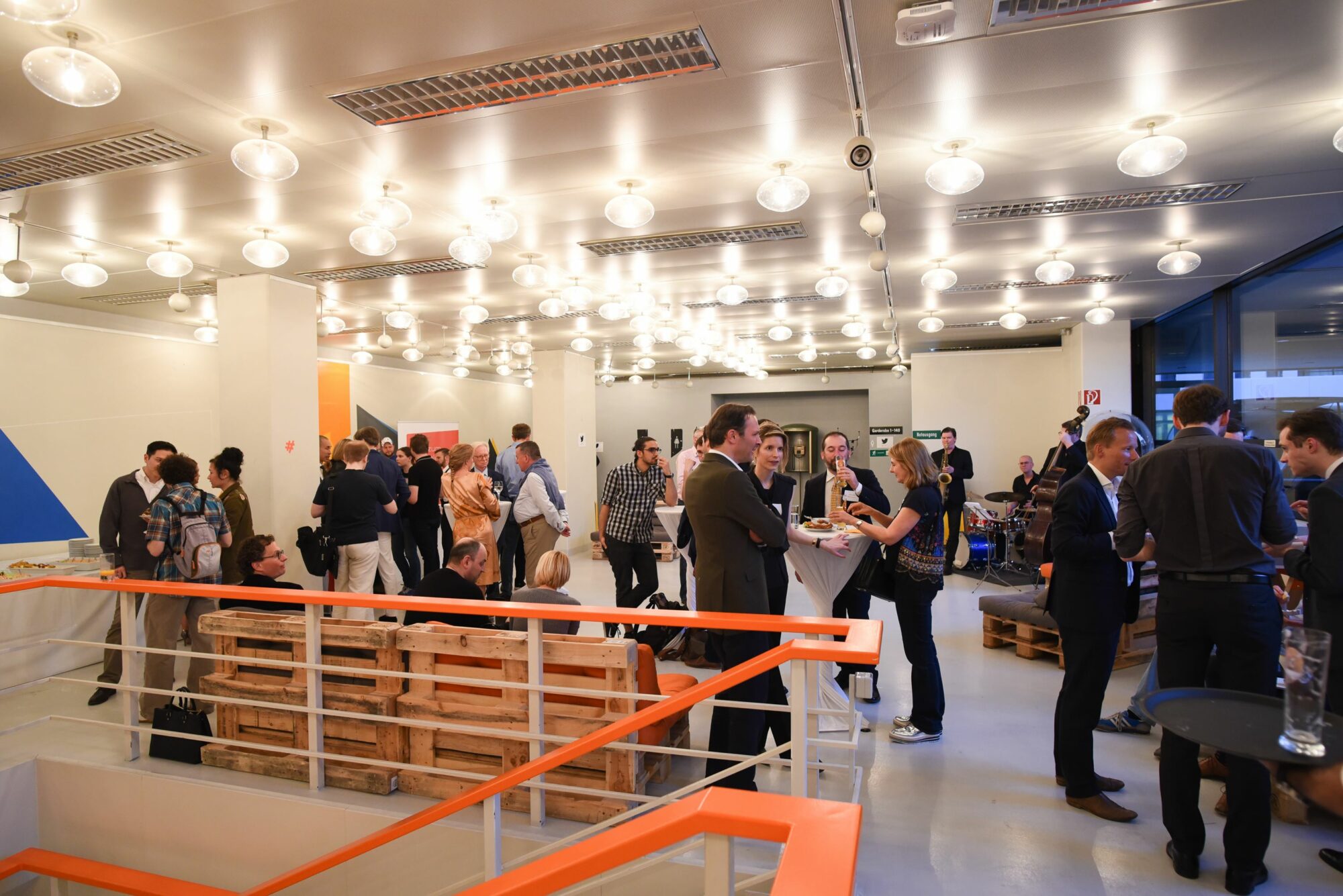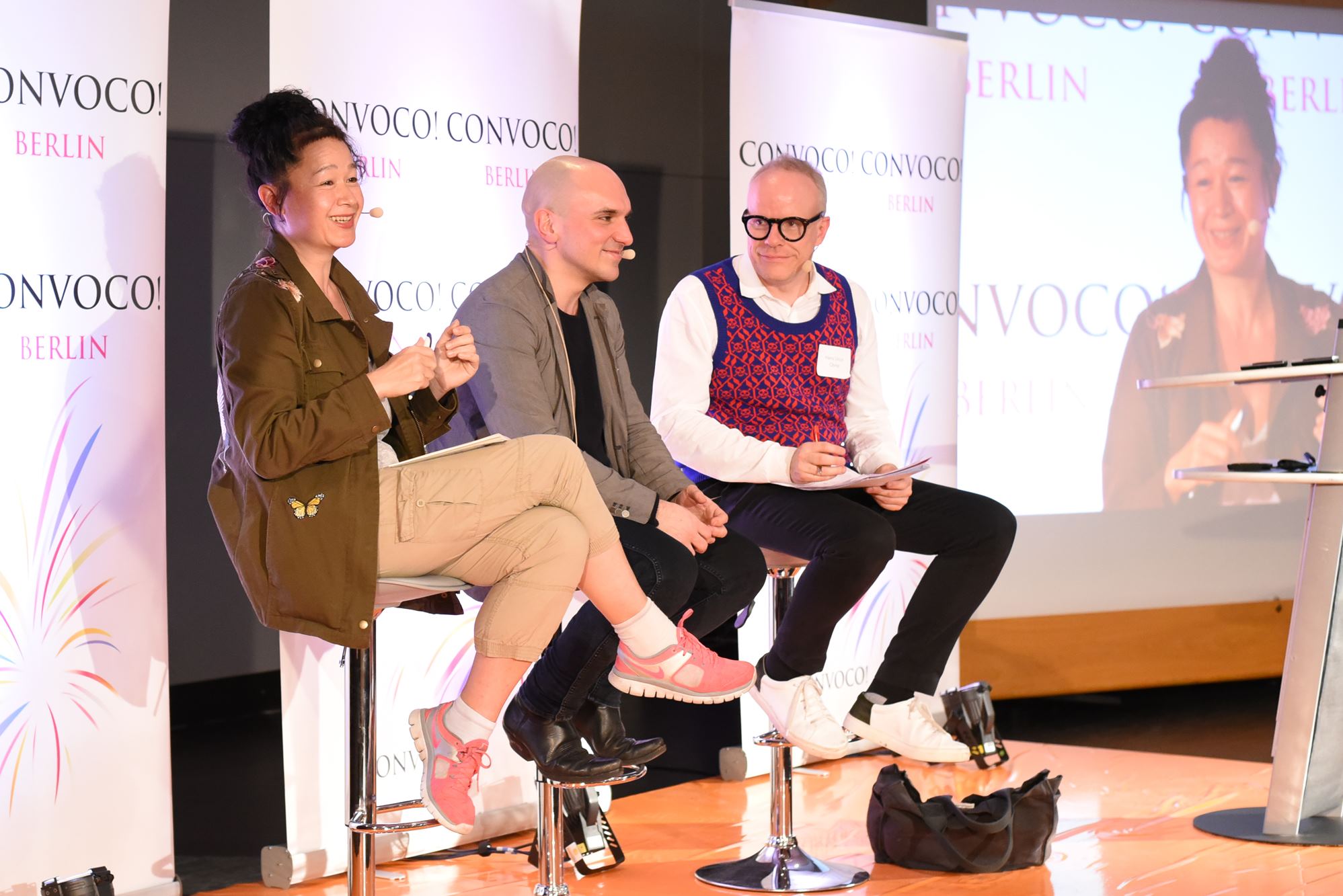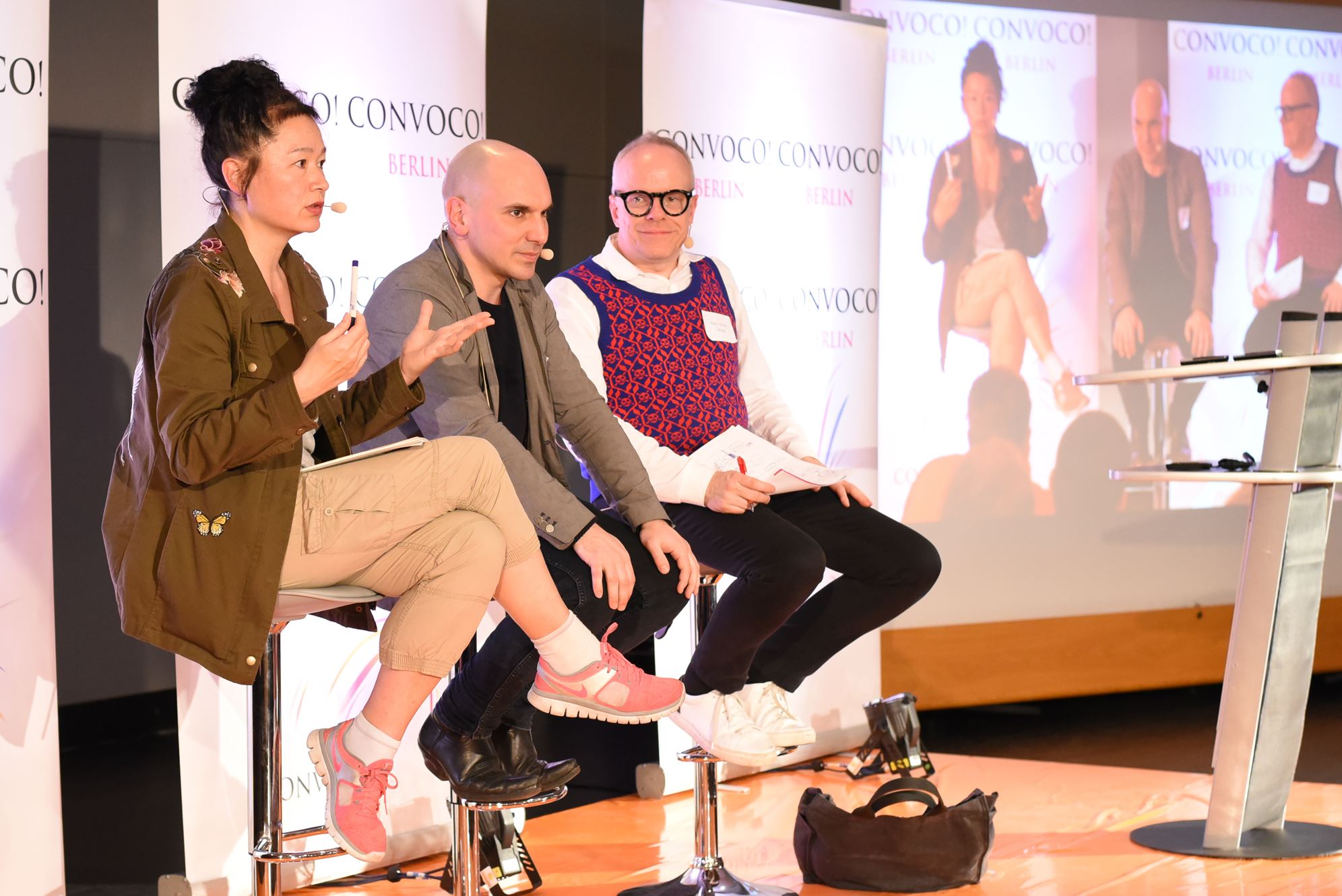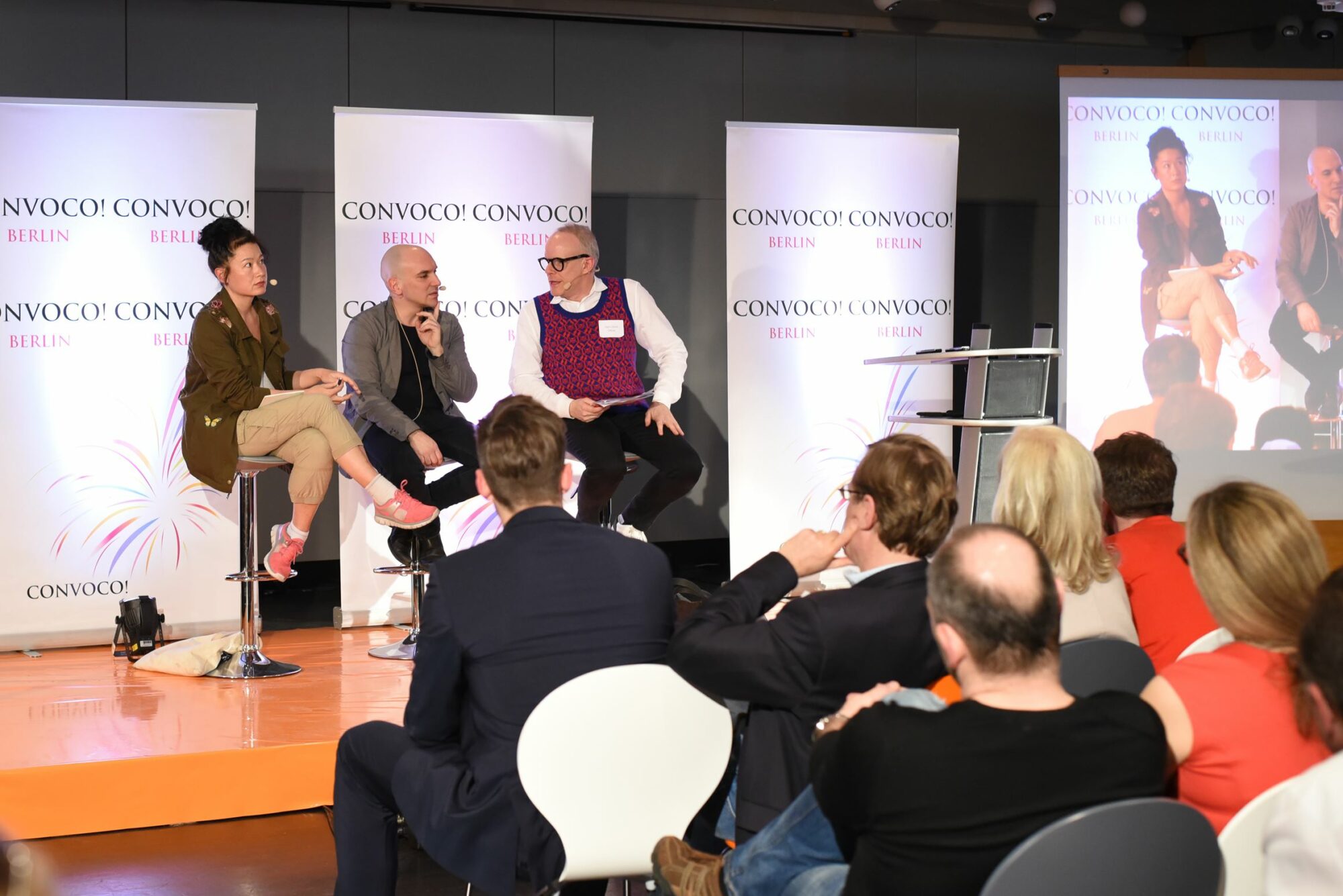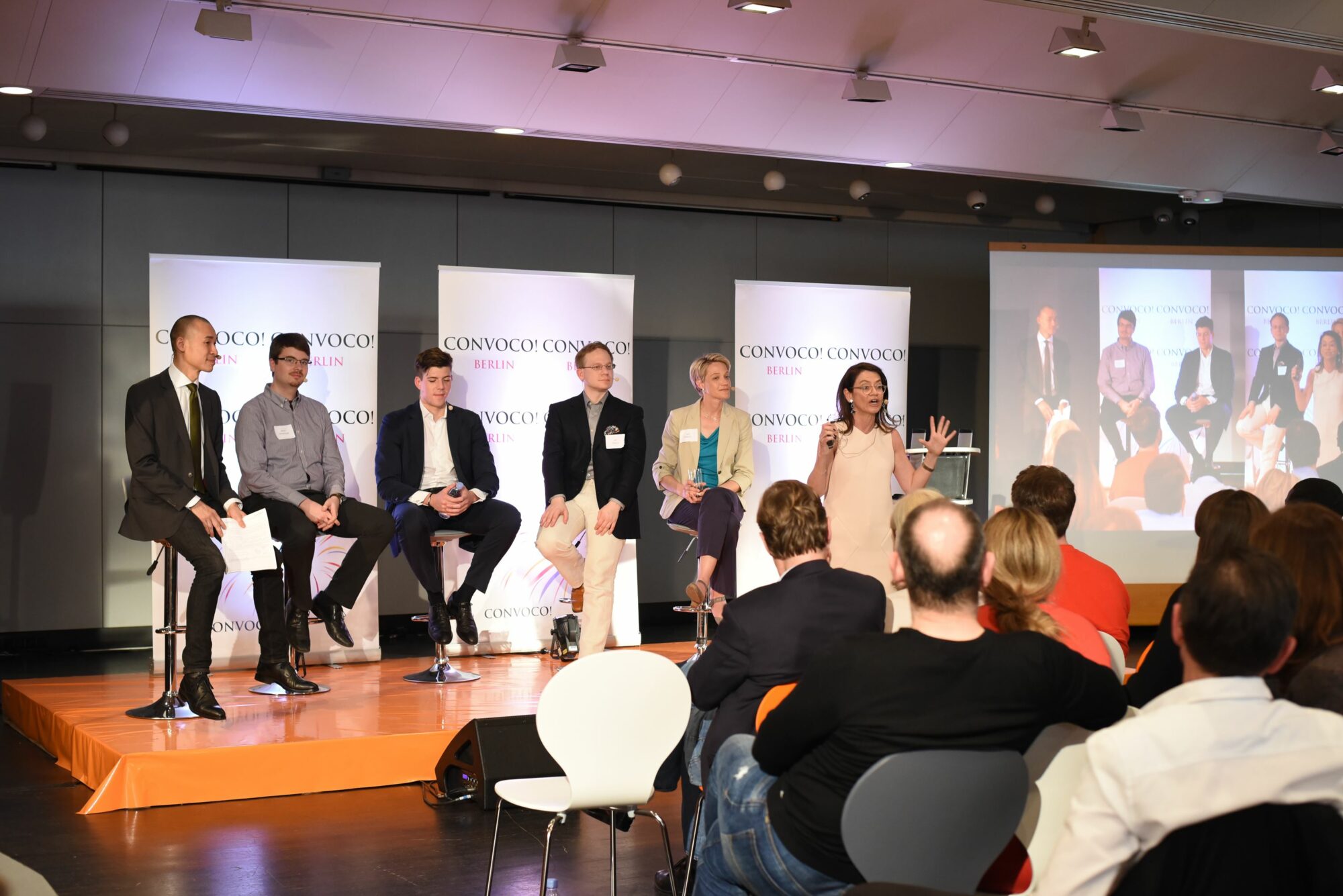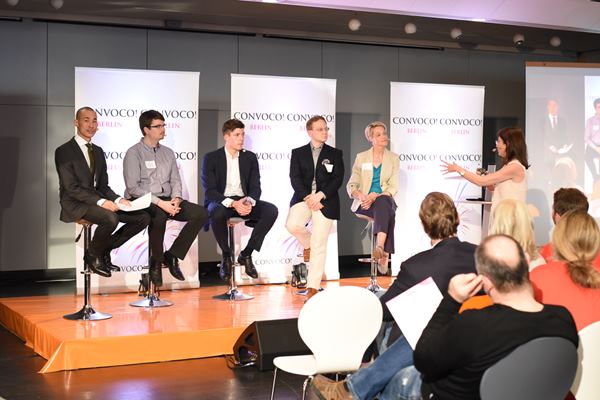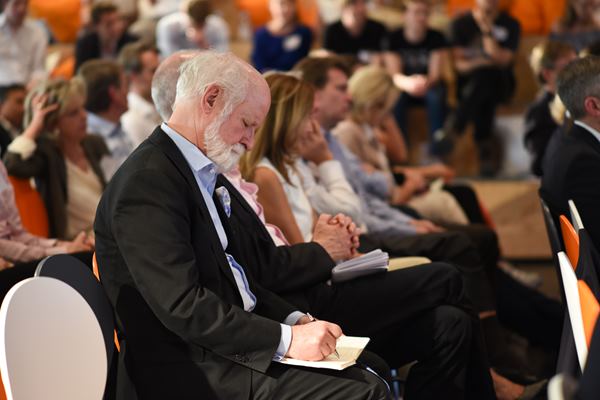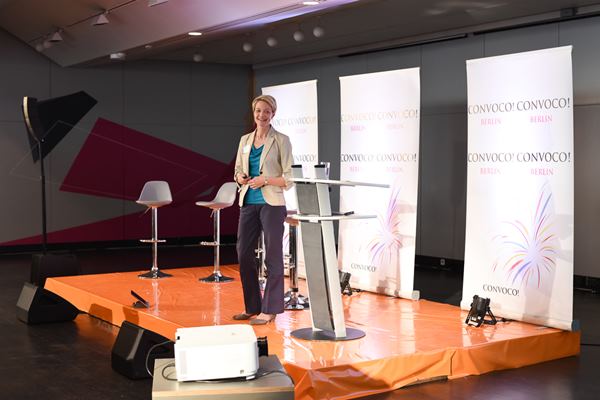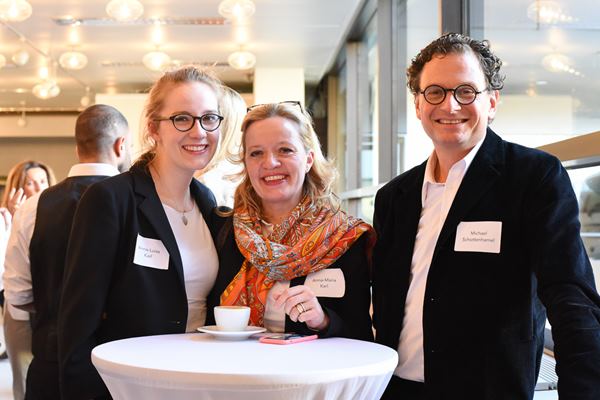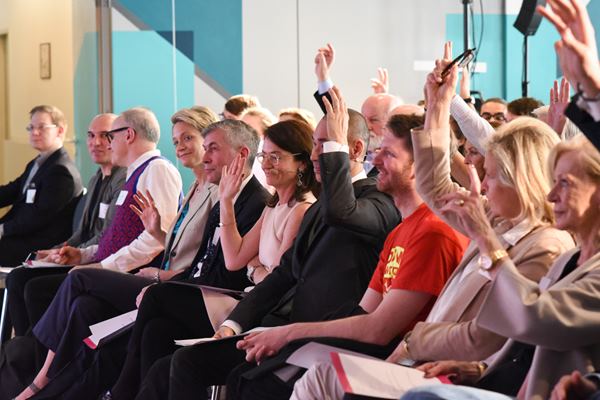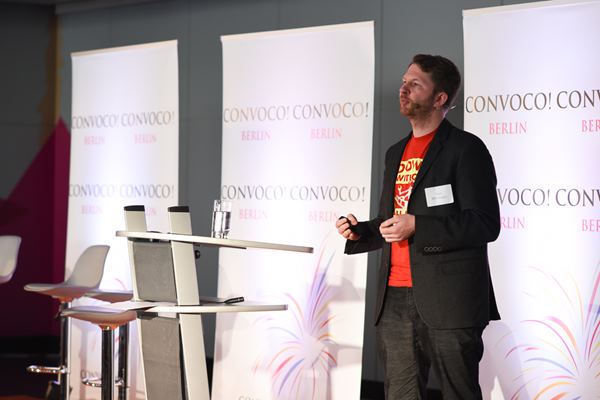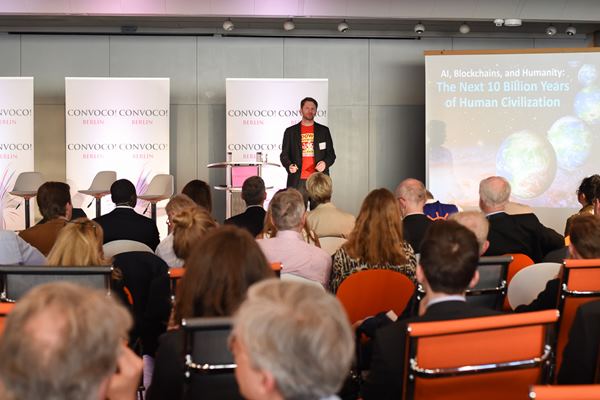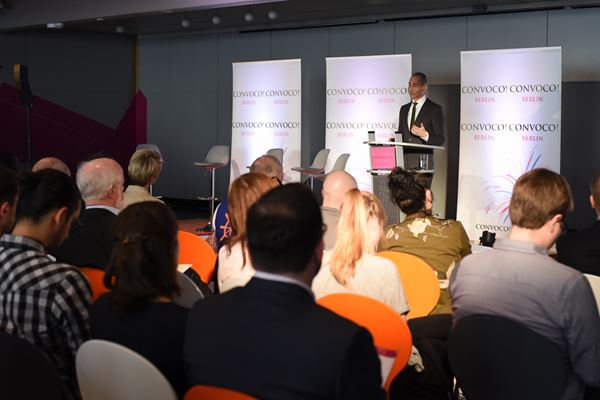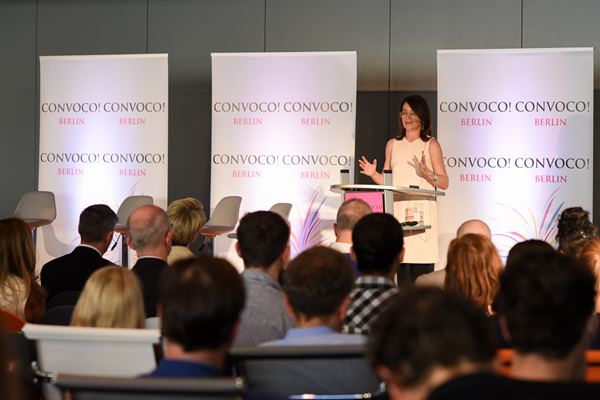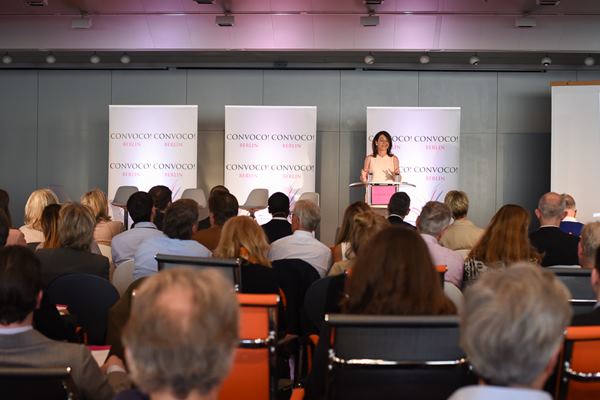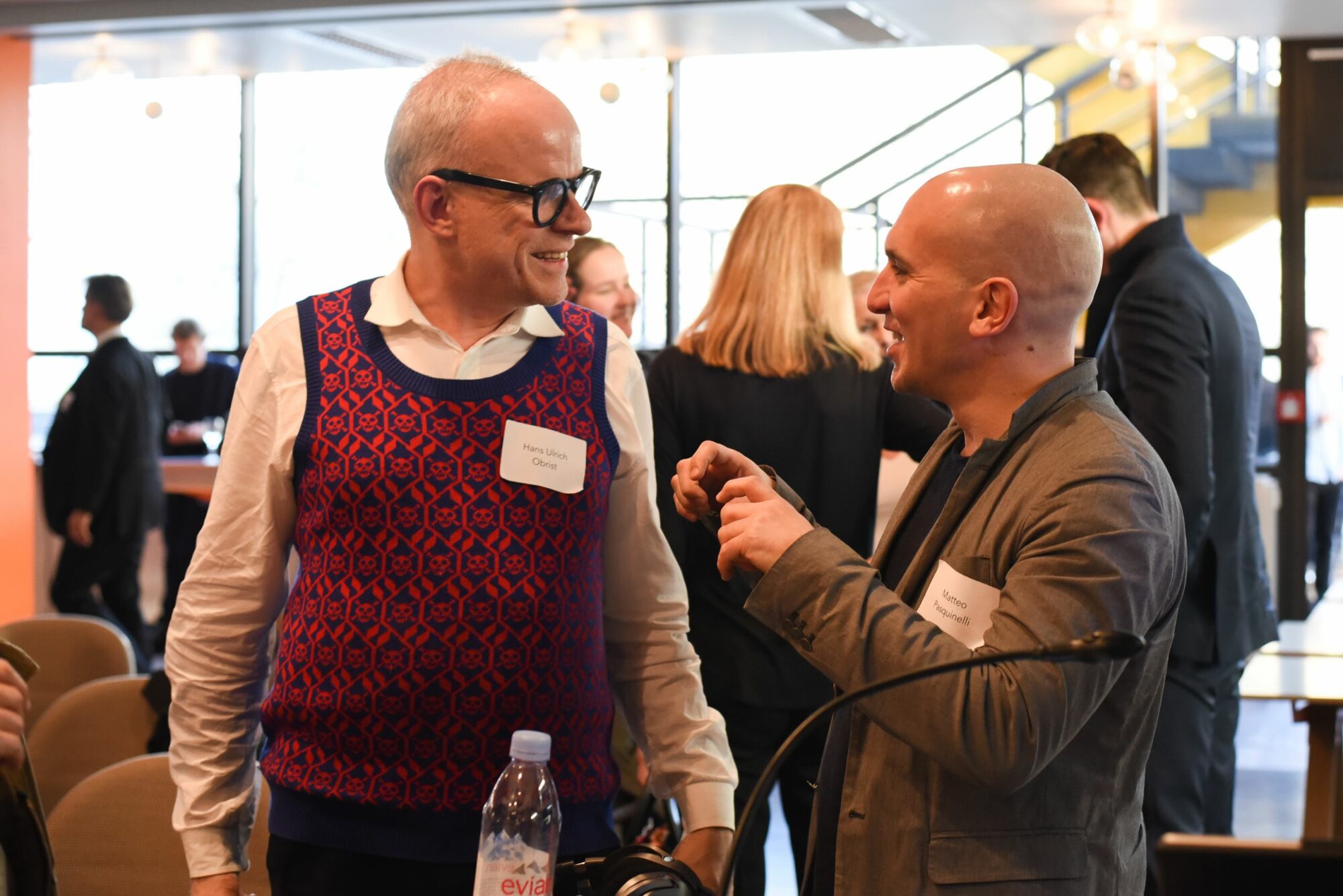CONVOCO! Lecture 04/2017: Artificial Intelligence and the Common Good
CONVOCO! Lecture 04/2017:
Artificial Intelligence and the Common Good
On 1 April 2017, the Convoco 3.0 group started Convoco 2017 with an event on “Artificial Intelligence and the Common Good”.
Forthcoming scientists and entrepreneurs discussed the challenges and opportunities of AI and looked at possible scenarios for dealing with the singularity.
Dr. Corinne Flick gave a short overview of the thoughts behind the concept of the common good. In the 21st century the common good needs to provide practical procedures by which we can thrive as a society (Aristotle) and act as an abstract guiding principle (Plato). It is central that we look at both afresh.
Bruce Pon then gave a short introduction about Artificial Intelligence (AI) and stated that we are on the cusp of giving machines the power that was once the exclusive realm of humans. What are the consequences if, according to Hawking, these machines have ‘the potential to evolve faster than the human race’?
The introductions were followed by a lecture from Dr. Trent McConaghy, co-founder of BigchainDB and various other companies who has worked with AI for more than 20 years. According to him, AIs could end up with control of all our resources. In fact, we might actually give it to AIs in the name of efficiency. This is an existential threat to humanity. How do we prevent it? Safe AI is a mirage. There’s another way: join the machines.
In the second lecture, David Dindi talked about combining human inductive reasoning and artificial deductive reasoning which will result in collective intelligence, a hybrid intelligence that will draw upon both strengths to move us towards encompassing infinite knowledge.
The second part of the event began with Dr. Julie Maupin from the Max-Planck-Institute for Comparative Public Law and International Law claiming that if we want to live in a world where AI is socially intelligent, we must also look to the natural sciences, social sciences, and humanities to inform our decision-making along this tremulous path toward “the singularity”.
The event finished with two panel discussions. The first panel was moderated by Bruce Pon. Together with Jan Klauck, Berlin Exponential Institute, Alexander Liegl Jr., Aurora Labs, Dr. Julie Maupin, and Dr. Brent Mittelstadt, Oxford Internet Institute, he talked about challenges and opportunities of AI for our society and opened up the discussion to the 150 members of the audience.
The second panel discussion was led by Hans Ulrich Obrist, artistic director of the London Serpentine Galleries. Together with the artist and filmmaker Hito Steyerl and Prof. Dr. Matteo Pasquinelli from the Karlsruhe University of Arts and Design they discussed the role of the artist in a society increasingly relying on AI, the concept of Artificial Stupidity, and how to stay human in the age of AI.

